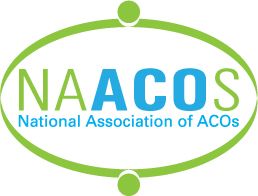
NAACOS Names 2023 Leaders in Quality Excellence Award Winners

Three accountable care organizations (ACOs) received recognition for their efforts by the National Association of ACOs (NAACOS), which named them this year’s Leaders in Quality Excellence.
To recognize the achievements of select accountable care organizations (ACOs) this past year, the National Association of ACOs (NAACOS) named Delaware Valley ACO, the University of Texas Southwestern (UTSW) ACO, and University of California San Francisco (UCSF) Health as 2023 Leaders in Quality Excellence, according to an
NAACOS established the Leaders in Quality Excellence Awards in 2021 to “recognize ACOs working to improve the quality and safety of patient care and advance population health goals.” NAACOS explained that it chose these winners specifically because they exemplify how ACOs across the country are closing gaps in care and improving care coordination for complex patients.
They then used their findings to show stakeholders that they should implement palliative care earlier. After implementing this strategy, the proportion of patients who received hospice care for 1 week or less before end of life improved from 47% to 32%. This strategy also allowed Delaware Valley ACO to provide more positive end-of-life experiences for patients and families. Overall, they found that patients who received home-based palliative care had cost savings of approximately $9000 in the last 90 days of life.
UTSW ACO, also known as
UTSW ACO then encouraged patients to enroll in a long-term complex care management program that provided personalized support and care coordination for clinical, social, pharmaceutical, and behavioral health needs. Six months later, they found 2 unplanned hospital admissions among the 25 patients who received complex care management and 31 unplanned hospital admissions among 91 patients who did not. Because of the program’s success, UTSW ACO said it plans to enroll 1800 individuals in complex care management in 2023.
Lastly,
UCSF Health worked with health disparity researchers to interview Black patients and better understand their preferences, barriers, and competing priorities. Based on their answers, UCSF Health designed interventions, including culturally tailored hypertension education materials, to help reduce discrepancies. They also designed a team-based intervention involving the primary care, pharmacy, and population health departments to help patients manage their hypertension. For those with uncontrolled hypertension, they offered an intensive program with telehealth pharmacist visits and coaching from health care navigators to encourage healthy behaviors.
To help patients with hypertension who had no recent blood pressure readings, UCSF Health navigators mailed home blood pressure monitors. They taught patients how to use the monitors through phone calls and video conferencing, and they collected blood pressure readings remotely. One year after implementation, UCSF Health found that the gap in blood pressure control narrowed significantly as 73.1% of Black patients attained it.
Overall, NAACOS noted that its Quality Committee chose these 3 organizations out of all nominees because of their efforts aligning with the criteria of innovation, improvement, scalability, and long-term contributions.
“NAACOS congratulates these ACOs for their outstanding work to improve the quality of care provided to the patients they serve,” they concluded.
Reference
NAACOS Leaders in Quality Excellence Awards. National Association of ACOs. Accessed June 26, 2023. https://www.naacos.com/2023-naacos-leaders-in-quality-excellence-awards
Newsletter
Stay ahead of policy, cost, and value—subscribe to AJMC for expert insights at the intersection of clinical care and health economics.









